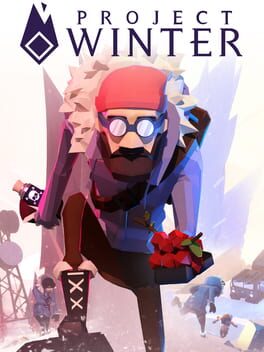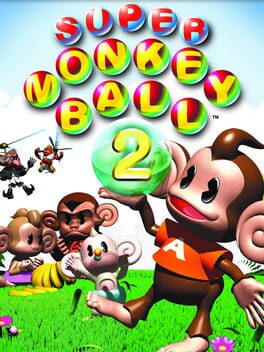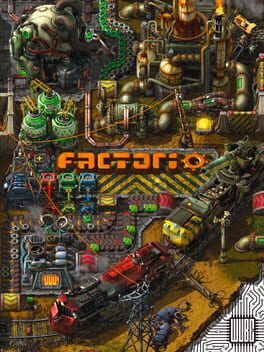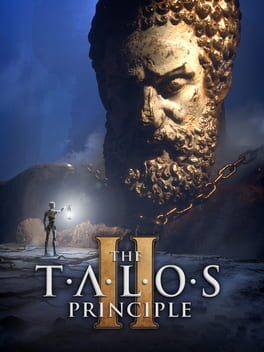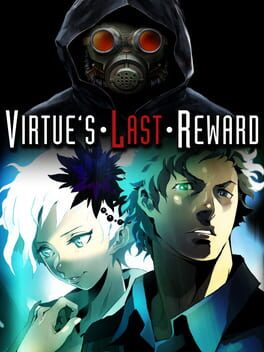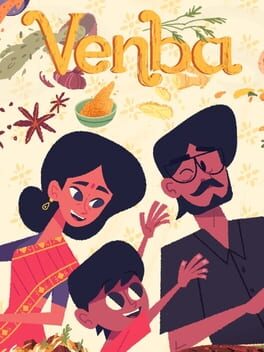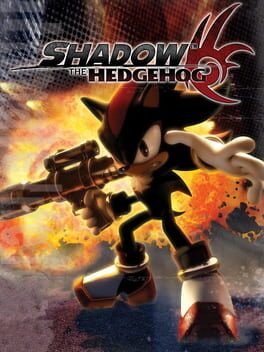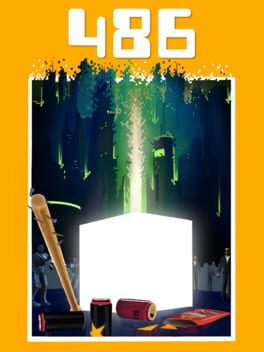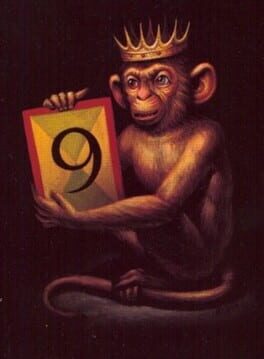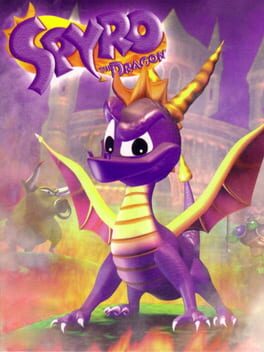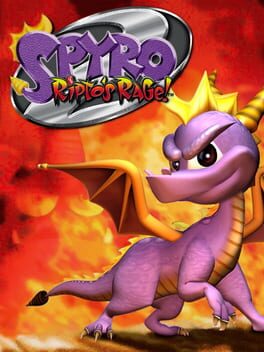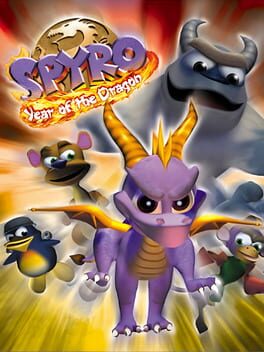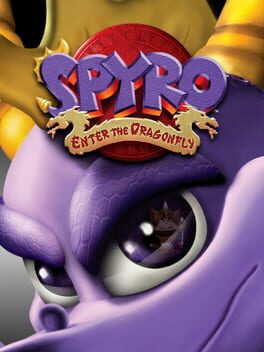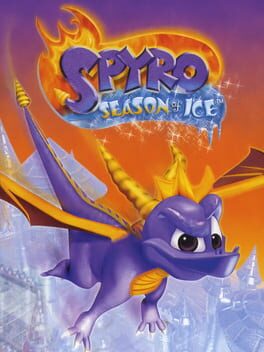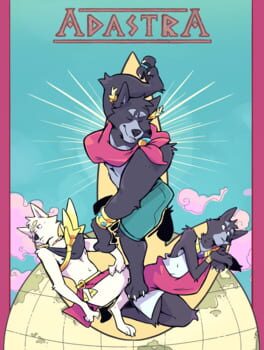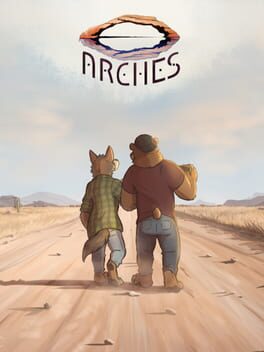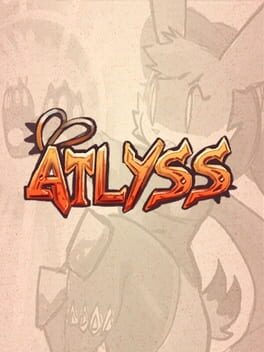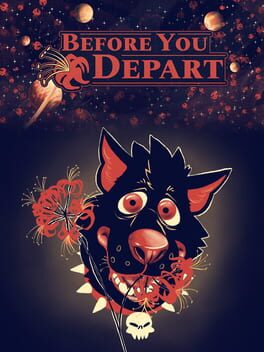yicar
29 reviews liked by yicar
Project Winter
2019
If you're looking for a social deduction game, I think Project Winter is the best you're going to find. The comparison to Among Us is something this game will never escape, but I think it's a comparison that does it a favor, as I can compare just about every aspect and see that PW tends to look more favorable. Proximity voice chat is something that will single handedly make a game like this more engaging. Running around a snowy wasteland as the voices of your friends get quieter around you is an experience so hilarious and immersive that I tend to forget that I'm just sitting at my desk. Another of PW's many triumphs in the genre is its gameplay for the innocent players. In Among Us, if you aren't the coveted traitor role, you're really just running around waiting for something to happen as you do some flash game tasks. Project Winter on the other hand is as much a survival game as it is a social deduction game, as you and your friends have to explore a desolate wasteland finding parts and crafting tools to repair an escape vehicle. The best way to summarize this gameplay is that, this would be a satisfying multiplayer game even without the traitor aspect.
Super Monkey Ball 2
2002
Pulled all the way through this time after initially running out of steam around world 6 about a year ago. The fundamental gameplay alone is certainly a home run, but the playful music and atmosphere further enhance things and give the game an oddly comforting and familiar feel for me. It might be that it's very reminiscent of games I'd download free trials for off Nick Arcade as a little kid (such as SpongeBob SquarePants Obstacle Odyssey). Either way, really good stuff all around. I can see myself coming back to this several times in the future.
It's not without its hiccups, though. Launchers and Arthropod, for example, are insanely egregious and difficult for the first half of the game's standards, creating a really weird bump in the otherwise smooth, steady difficulty curve. Similarly, in the last world in Story Mode the design philosophy completely changes and noticeably becomes totally obtuse. They're not even necessarily harder than the levels in the previous two worlds, but it's a very jarring shift that doesn't really result in any enjoyable levels out of those last ten.
Would very strongly recommend this game, but definitely don't let your guard down. It gets a lot harder than it initially lets on.
It's not without its hiccups, though. Launchers and Arthropod, for example, are insanely egregious and difficult for the first half of the game's standards, creating a really weird bump in the otherwise smooth, steady difficulty curve. Similarly, in the last world in Story Mode the design philosophy completely changes and noticeably becomes totally obtuse. They're not even necessarily harder than the levels in the previous two worlds, but it's a very jarring shift that doesn't really result in any enjoyable levels out of those last ten.
Would very strongly recommend this game, but definitely don't let your guard down. It gets a lot harder than it initially lets on.
Factorio
2016
By god, did I make all of this?
If you've seen my backloggd profile or know me any amount, you would know that The Talos Principle is my favorite game of all time. A game that's fundamentally changed the way I interact with this medium and also just, changed my life in general honestly, so to say I was excited at the prospect of a sequel is an understatement.
The common throughline for me is that most of the game just feels underbaked. Doesn't feel like enough is given the time of day to shine, and just when it starts to get nearly close to as good as the first game, it's basically over. The gold door puzzles are without a doubt the best 12 levels in the game, which sucks because the final level is just as underdeveloped as the rest of the game is. Having one gimmick per area doesn't really allow for any of them to develop nearly as much as the 5 gimmicks of the main game, leading to worlds that all feel like tutorials for the new gimmick and nothing more.
The stars are almost completely neutered, with maybe 2 of them capturing the same feeling as the original stars in interacting with the world as much as I can in order to solve a macro scaled puzzle that leads me to the star. The prometheus and sphinx stars are especially weak, considering the former are all chase sequences and the latter being extremely bare bones find and interact a little thingy to get the star.
The story, while still good in its own right, doesn't come nearly as close to as good as the first game. Where the original had its told almost entirely through subtext, with the more juicy and frankly important elements all being essentially optional, this game does the opposite and pushes it as much as possible, to where it's the central focus of the game, which doesn't work nearly as well. The overwhelming mass of characters feels painfully unnecessary, especially when only like 2 of them actually matter in the end, with the rest only existing to exist and throw occasional quips at you (although I do like how each character does have their own political viewpoints and that its cool to see how each character interprets the current situation and what they think makes sense as a next move).
Overall, I really expected more than what was received, which in all fairness is partly my fault. Going in with the expectation of a game being the sequel to my literal favorite game is too high, but too much here feels like they're desperately trying to fix something that wasn't ever broken.
The common throughline for me is that most of the game just feels underbaked. Doesn't feel like enough is given the time of day to shine, and just when it starts to get nearly close to as good as the first game, it's basically over. The gold door puzzles are without a doubt the best 12 levels in the game, which sucks because the final level is just as underdeveloped as the rest of the game is. Having one gimmick per area doesn't really allow for any of them to develop nearly as much as the 5 gimmicks of the main game, leading to worlds that all feel like tutorials for the new gimmick and nothing more.
The stars are almost completely neutered, with maybe 2 of them capturing the same feeling as the original stars in interacting with the world as much as I can in order to solve a macro scaled puzzle that leads me to the star. The prometheus and sphinx stars are especially weak, considering the former are all chase sequences and the latter being extremely bare bones find and interact a little thingy to get the star.
The story, while still good in its own right, doesn't come nearly as close to as good as the first game. Where the original had its told almost entirely through subtext, with the more juicy and frankly important elements all being essentially optional, this game does the opposite and pushes it as much as possible, to where it's the central focus of the game, which doesn't work nearly as well. The overwhelming mass of characters feels painfully unnecessary, especially when only like 2 of them actually matter in the end, with the rest only existing to exist and throw occasional quips at you (although I do like how each character does have their own political viewpoints and that its cool to see how each character interprets the current situation and what they think makes sense as a next move).
Overall, I really expected more than what was received, which in all fairness is partly my fault. Going in with the expectation of a game being the sequel to my literal favorite game is too high, but too much here feels like they're desperately trying to fix something that wasn't ever broken.
Quite disappointing. Going in totally blind and as a big fan of the original, I was initially excited by the greatly expanded scope of the story, the NPCs, and the world. But that faded quickly as the story bored, the puzzles proved weirdly easy, and the massive areas revealed themselves to be hollow, immensely frustrating to navigate, and totally pointless to explore.
That last one made me the most crestfallen. The first game had relatively small, dense levels that were absolutely packed with Easter eggs and ingenious secrets, constantly challenging you to leave the beaten path and rewarding every stray thought of, "I wonder if ..." with the confirmation that, yep, the devs did think of that, and they put something there just for you. Sometimes a silly something; sometimes an important something! I love games like that. I feel like that used to be Croteam's thing. But TTPII almost feels like a deliberate and direct refutation of that design ethos, with every area very rigidly and lamely having the same types and amounts of collectibles and "secrets" (now obvious riddles that a ten-year-old could decipher) signposted and marked on your compass. It's possible that there are a ton of awesome other secrets and eggs out there somewhere, but with how stupidly large and overstuffed with meaningless decoration the areas are, digging around for any amount of time only to be consistently rewarded with jack shit doesn't exactly make you want to continue looking. Compounding this problem (and creating lots of others) is the navigation. You'll notice I said "marked on your compass" earlier, not "marked on your map" ... yeah. I'll happily admit that I am worse at directions/navigation/orienteering than lots of people, but running around these giant, empty-ass yet topographically complex areas is fucking maddening, and the fact that they didn't give you any kind of overhead map option (and even only added the compass when people bitched!!) is absolutely unthinkable. I understand that the idea of exploring the areas is important to the story and the thematic content therein, but you're playing as a group of fucking robot intellectuals. They would MAKE MAPS. I don't like calling devs lazy, but it's either that or stupid in this case, so, take your pick, I guess.
That stuff is just the most glaring problem, but as I said, there are other significant ones. The story is exceptionally long and long-winded. All of the optional puzzles in every area are weirdly gated behind doing EVERY "secret" thingy in the ENTIRE GAME first, which makes them all amount to a kind of almost-post-game sidequest that you unlock that you have to do all of right in a row before the finale, which is dumb. The massive alien structures dominating each area that you need to get into are totally meaningless from a gameplay perspective, essentially being large 3D sculptures that house a single room with a cutscene and a switch, so what's the fucking point of them. The same goes for the showstopping central pyramid that you keep returning to - just (long) hallways connecting (very easy) puzzles and nothing to explore and no mystique whatsoever. There is no difficulty curve to speak of and almost every puzzle in the game is easier than the stuff in the back half of its predecessor. And, oh yeah, the entire build is a mess with game-breaking glitches and softlocks absolutely everywhere.
So, yeah. It's a shame. Bigger isn't always better in games. Again. Still love the spirit of the original, which this one definitely lost.
That last one made me the most crestfallen. The first game had relatively small, dense levels that were absolutely packed with Easter eggs and ingenious secrets, constantly challenging you to leave the beaten path and rewarding every stray thought of, "I wonder if ..." with the confirmation that, yep, the devs did think of that, and they put something there just for you. Sometimes a silly something; sometimes an important something! I love games like that. I feel like that used to be Croteam's thing. But TTPII almost feels like a deliberate and direct refutation of that design ethos, with every area very rigidly and lamely having the same types and amounts of collectibles and "secrets" (now obvious riddles that a ten-year-old could decipher) signposted and marked on your compass. It's possible that there are a ton of awesome other secrets and eggs out there somewhere, but with how stupidly large and overstuffed with meaningless decoration the areas are, digging around for any amount of time only to be consistently rewarded with jack shit doesn't exactly make you want to continue looking. Compounding this problem (and creating lots of others) is the navigation. You'll notice I said "marked on your compass" earlier, not "marked on your map" ... yeah. I'll happily admit that I am worse at directions/navigation/orienteering than lots of people, but running around these giant, empty-ass yet topographically complex areas is fucking maddening, and the fact that they didn't give you any kind of overhead map option (and even only added the compass when people bitched!!) is absolutely unthinkable. I understand that the idea of exploring the areas is important to the story and the thematic content therein, but you're playing as a group of fucking robot intellectuals. They would MAKE MAPS. I don't like calling devs lazy, but it's either that or stupid in this case, so, take your pick, I guess.
That stuff is just the most glaring problem, but as I said, there are other significant ones. The story is exceptionally long and long-winded. All of the optional puzzles in every area are weirdly gated behind doing EVERY "secret" thingy in the ENTIRE GAME first, which makes them all amount to a kind of almost-post-game sidequest that you unlock that you have to do all of right in a row before the finale, which is dumb. The massive alien structures dominating each area that you need to get into are totally meaningless from a gameplay perspective, essentially being large 3D sculptures that house a single room with a cutscene and a switch, so what's the fucking point of them. The same goes for the showstopping central pyramid that you keep returning to - just (long) hallways connecting (very easy) puzzles and nothing to explore and no mystique whatsoever. There is no difficulty curve to speak of and almost every puzzle in the game is easier than the stuff in the back half of its predecessor. And, oh yeah, the entire build is a mess with game-breaking glitches and softlocks absolutely everywhere.
So, yeah. It's a shame. Bigger isn't always better in games. Again. Still love the spirit of the original, which this one definitely lost.
Omori
2020
Sorry, the only “Sunny” I recognize is Sonny LoSpecchio, a true Italian American hero
MY VIRTUE IS TO LAST TIL SHE GIVE ME MY REWARD
“I gotta get outta here!!” - That absurdly buff fish from SpongeBob, SpongeBob SquarePants, Season 2. Ep. 19/39b (2001)
There’s alway been a magical absurdity to the scene that proceeds this quote. The rumbling quake that comes from the creatures steps. To Plankton’s manically and violently introducing who might be SpongeBob’s opponent, almost like some sort of biblical monstrosity. The thing is—unless you’re a child, or just comically unaware, you know that it’s the setup for some sort of joke. The terrifyingly buff fish crashes through the wall only to give a pathetic whine and reveal the truth; that Plankton’s borderline insane ranting was all for Patrick Star. Expectations are shattered, the whole room starts laughing, backflips are performed, your brother starts proposing to his girlfriend in the light of such absurd humour. In the light of such humor though, we find that the threat posed is still in effect, just not by the gigantic fish, but by Patrick.
None of this is to try and make SpongeBob sound like some sort of epic ala the writings of poet Virgil. The point of this is to show how I feel about VLR.
Before I continue that line of thought, I want to go into some partially related aspects of VLR.
VLR starts off similar in an off-hand way to 999, a brief slideshow of text and events shows our main character being treated with the classic #9 order of white gas, kidnapping, and a large side of fries. The beginning is devoted to putting us in our first puzzle room and introducing us to our characters. Now for all intents and purposes—VLR does completely well in this regard. But in comparison to 999, one of my favorite introductions to a game—it falls short. This introduction puts one issue with this game, and one thing I love about it.
That issue being that, it seems like most characters are the complete same from the get go to the end, the only answer to them missing is their motivation. The characters in 999 feel more dynamic, like actual people. The characters in VLR feel like an unchanging checklist of personality traits. I found myself missing how human the characters in 999 felt. That being said I greatly enjoy the characters in VLR. I was particularly drawn to Luna. I just hardly got the feeling of “wow! I love this character!” or “wow that was a great character moment”. I think the issue with this is lack of flavor text, particularly in puzzle rooms. This is especially saddening when you remember that there are returning characters are they’re not as good as their 999 counterparts.
BUT, this introduction just really sells how sharp most of the rest of the game is. I find that in all three starting routes once you get past the first AB game, VLR really shows how sharp it can be, because frankly—the plot of VLR is one of the most interesting and well executed ideas for a plot. It’s constantly information after information, questions, theories, it’s all so wild. There’s something around every corner to surprise the player and to have them rethink what they know. The ideas behind this game are incredibly carefully considered…for the most part.
Before I get into that I want to take a brief stint into gameplay and graphics - Yes, this game is ugly. The models for characters are bland when our side to side with the key art. Some expressions are oftentimes underutilized while some are lost in translation. There’s a bug that makes Clover smile all the darn time. Environments are dull, and that’s fine. 999 looked dull, but it was also dull and uncomfortable, gross, it made my nipples honestly hard, was that goosebumps, or did I just enjoy the art that much? The comfort zones of human’s are fickle, but I’m pretty sure they don’t extent far enough to talk about my nipples for a paragraph. Going back—VLR’s environments were just dull. Except for a couple of puzzle rooms, notably the garden and the rec room. As for the gameplay, it’s fine, more difficult than 999 control wise, but nothing to complain about. I actually enjoy the puzzles here more than 999 for the most part.
Back to the SpongeBob example…
Out of the gate, VLR has something to live up to. It comes off the tail of the utterly fantastic 999; a game that was able to answer it’s biggest questions in a concise and in a way, logical by the standards set up. Not only that, VLR hardly ever strays away from giving the player new tidbits of information, and big questions to be solved, it sets itself up for big answers and big expectations. Much like that SpongeBob scene.
The answers the player gets is akin to Patrick, still significant in its own right, but anti-climatic. After the emotionally touching and potent ending of 999, I expected for something as half as effective. The ending we get in VLR is good, it answers all that we need to know then pushes us along to the credits. It’s a “woop, there you go, here’s the answer to everything you’ve spent 30 hours wondering.” It’s made worse by the fact the ending relies on the sequel, Zero Time Dilemma, to be worth it, and reviews of ZTD are not great. This ending experience isn’t as bad as some make it out to be. But…it didn’t win me over. I just wish it left me off feeling like I experienced something great. I know that it’s about the journey, not the destination, but in this case the destination raises itself to be as big as the journey, but it never is so.
That’s all I have to share on VLR, I want to give this game a few more words someday, but for mostly spoiler free, this works by me. This is a great game, worth your playthrough, please play 999 first though.
I give this game a
siggggggggggggggggy…
phidoooooooooooooooo…
what are you kids doing over there?
we’re about to announce the results! Out of 10
There’s alway been a magical absurdity to the scene that proceeds this quote. The rumbling quake that comes from the creatures steps. To Plankton’s manically and violently introducing who might be SpongeBob’s opponent, almost like some sort of biblical monstrosity. The thing is—unless you’re a child, or just comically unaware, you know that it’s the setup for some sort of joke. The terrifyingly buff fish crashes through the wall only to give a pathetic whine and reveal the truth; that Plankton’s borderline insane ranting was all for Patrick Star. Expectations are shattered, the whole room starts laughing, backflips are performed, your brother starts proposing to his girlfriend in the light of such absurd humour. In the light of such humor though, we find that the threat posed is still in effect, just not by the gigantic fish, but by Patrick.
None of this is to try and make SpongeBob sound like some sort of epic ala the writings of poet Virgil. The point of this is to show how I feel about VLR.
Before I continue that line of thought, I want to go into some partially related aspects of VLR.
VLR starts off similar in an off-hand way to 999, a brief slideshow of text and events shows our main character being treated with the classic #9 order of white gas, kidnapping, and a large side of fries. The beginning is devoted to putting us in our first puzzle room and introducing us to our characters. Now for all intents and purposes—VLR does completely well in this regard. But in comparison to 999, one of my favorite introductions to a game—it falls short. This introduction puts one issue with this game, and one thing I love about it.
That issue being that, it seems like most characters are the complete same from the get go to the end, the only answer to them missing is their motivation. The characters in 999 feel more dynamic, like actual people. The characters in VLR feel like an unchanging checklist of personality traits. I found myself missing how human the characters in 999 felt. That being said I greatly enjoy the characters in VLR. I was particularly drawn to Luna. I just hardly got the feeling of “wow! I love this character!” or “wow that was a great character moment”. I think the issue with this is lack of flavor text, particularly in puzzle rooms. This is especially saddening when you remember that there are returning characters are they’re not as good as their 999 counterparts.
BUT, this introduction just really sells how sharp most of the rest of the game is. I find that in all three starting routes once you get past the first AB game, VLR really shows how sharp it can be, because frankly—the plot of VLR is one of the most interesting and well executed ideas for a plot. It’s constantly information after information, questions, theories, it’s all so wild. There’s something around every corner to surprise the player and to have them rethink what they know. The ideas behind this game are incredibly carefully considered…for the most part.
Before I get into that I want to take a brief stint into gameplay and graphics - Yes, this game is ugly. The models for characters are bland when our side to side with the key art. Some expressions are oftentimes underutilized while some are lost in translation. There’s a bug that makes Clover smile all the darn time. Environments are dull, and that’s fine. 999 looked dull, but it was also dull and uncomfortable, gross, it made my nipples honestly hard, was that goosebumps, or did I just enjoy the art that much? The comfort zones of human’s are fickle, but I’m pretty sure they don’t extent far enough to talk about my nipples for a paragraph. Going back—VLR’s environments were just dull. Except for a couple of puzzle rooms, notably the garden and the rec room. As for the gameplay, it’s fine, more difficult than 999 control wise, but nothing to complain about. I actually enjoy the puzzles here more than 999 for the most part.
Back to the SpongeBob example…
Out of the gate, VLR has something to live up to. It comes off the tail of the utterly fantastic 999; a game that was able to answer it’s biggest questions in a concise and in a way, logical by the standards set up. Not only that, VLR hardly ever strays away from giving the player new tidbits of information, and big questions to be solved, it sets itself up for big answers and big expectations. Much like that SpongeBob scene.
The answers the player gets is akin to Patrick, still significant in its own right, but anti-climatic. After the emotionally touching and potent ending of 999, I expected for something as half as effective. The ending we get in VLR is good, it answers all that we need to know then pushes us along to the credits. It’s a “woop, there you go, here’s the answer to everything you’ve spent 30 hours wondering.” It’s made worse by the fact the ending relies on the sequel, Zero Time Dilemma, to be worth it, and reviews of ZTD are not great. This ending experience isn’t as bad as some make it out to be. But…it didn’t win me over. I just wish it left me off feeling like I experienced something great. I know that it’s about the journey, not the destination, but in this case the destination raises itself to be as big as the journey, but it never is so.
That’s all I have to share on VLR, I want to give this game a few more words someday, but for mostly spoiler free, this works by me. This is a great game, worth your playthrough, please play 999 first though.
I give this game a
siggggggggggggggggy…
phidoooooooooooooooo…
what are you kids doing over there?
we’re about to announce the results! Out of 10
Venba
2023
For the longest time, I didn't understand the point of representation in media. I didn't get why it was such a big deal for POC to get their spotlight, spewing the same falsities like, "if they were more talented, they would get the parts." I realized soon that a big reason I was turned off by the idea of representation was because I never felt represented by media almost ever. Seeing Black, East Asian, Hispanic, among many, many other cultures slowly get their limelight in western content is beautiful, but I started to feel a little sad by the lack of good Indian representation in media, ever. The closest we've gotten until this year was Hasan Minhaj's presence in comedy and that's, pretty much it for anything in terms of positive representation. That's not the same this year.
Firstly, we had Across the Spider-verse, and Pavitr Prabhakar. It was beautiful to see someone who clearly inspired by the culture of my country and embodies it in a way that shows reverence to that culture play such a major role in a massively popular film. His dialogue was clearly written by someone that was Indian (proven by the fact that Karan Soni, his VA, oversaw the writing of his character) and it shows in the jokes he makes and the way he talks. It made me feel really happy seeing him on the big screen.
Then we have this, which is about the best thing I could ever ask for. It's a celebration of the food I grew up eating (albeit in this case with meat but it's not too different) and my Tamil heritage. It's a love letter to the experience that so many parents and their children face; moving to the west in search for a better life for their kids, only for the children to feel a culture shock and not know what they want to be. I, personally, struggled a lot (and still do) with my identity and my culture, whether it be me having to learn to be more open about the Indian food I brought to school every day, or how I still struggle to get people to pronounce my name right and default to the "white" way to say it. Seeing that story (one that is absolutely not unique to me) told in a game made me tear up multiple times. Seeing the struggle that both Venba and Paavalan go through just to raise their kid in the best way possible reminded me of my own parents and the struggles I imagine they have to go through in raising me. It's a deeply personal story that I connected with on every level and makes me so happy that a story like this is being brought to wider audiences.
Do I have gripes with the game? Yes. It's simply too short for the $15 price tag, and I think the game could have benefited with more meat on its bones. Does that change the fact that this game in the way it exists right now means a lot to me and will be one I cherish for the foreseeable future and hopefully the rest of my life? No, not at all. I'm thankful for this game existing, and hope that it can serve as proof that the stories of my people deserve to be told.
Time to go eat some god damn dosa.
Firstly, we had Across the Spider-verse, and Pavitr Prabhakar. It was beautiful to see someone who clearly inspired by the culture of my country and embodies it in a way that shows reverence to that culture play such a major role in a massively popular film. His dialogue was clearly written by someone that was Indian (proven by the fact that Karan Soni, his VA, oversaw the writing of his character) and it shows in the jokes he makes and the way he talks. It made me feel really happy seeing him on the big screen.
Then we have this, which is about the best thing I could ever ask for. It's a celebration of the food I grew up eating (albeit in this case with meat but it's not too different) and my Tamil heritage. It's a love letter to the experience that so many parents and their children face; moving to the west in search for a better life for their kids, only for the children to feel a culture shock and not know what they want to be. I, personally, struggled a lot (and still do) with my identity and my culture, whether it be me having to learn to be more open about the Indian food I brought to school every day, or how I still struggle to get people to pronounce my name right and default to the "white" way to say it. Seeing that story (one that is absolutely not unique to me) told in a game made me tear up multiple times. Seeing the struggle that both Venba and Paavalan go through just to raise their kid in the best way possible reminded me of my own parents and the struggles I imagine they have to go through in raising me. It's a deeply personal story that I connected with on every level and makes me so happy that a story like this is being brought to wider audiences.
Do I have gripes with the game? Yes. It's simply too short for the $15 price tag, and I think the game could have benefited with more meat on its bones. Does that change the fact that this game in the way it exists right now means a lot to me and will be one I cherish for the foreseeable future and hopefully the rest of my life? No, not at all. I'm thankful for this game existing, and hope that it can serve as proof that the stories of my people deserve to be told.
Time to go eat some god damn dosa.
Shadow the Hedgehog
2005
My grandma gave me this game when I was 6 and I saw Sonic die in the intro cutscene and cried so hard I threw up
